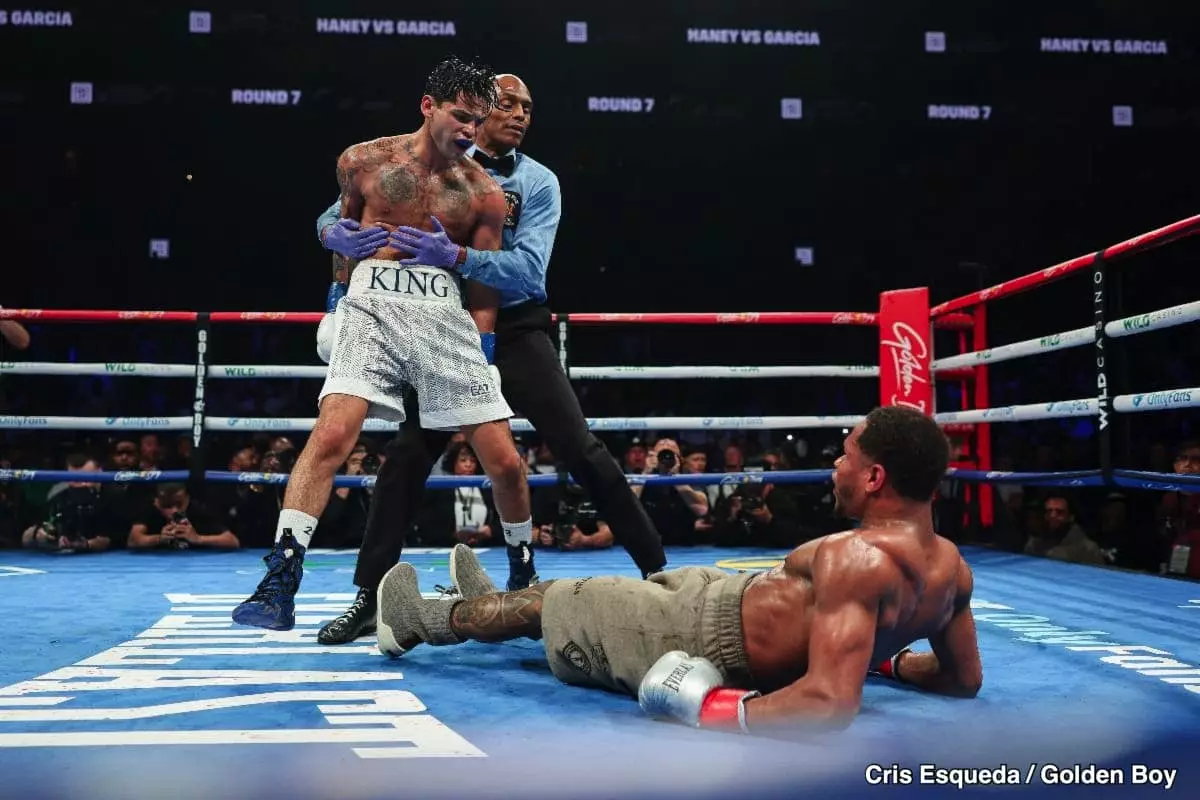In the world of professional boxing, decisions made at pivotal moments can dictate a fighter’s trajectory, character, and legacy. Devin Haney, boasting an impressive record of 31-0, finds himself at a critical juncture following his defeat to Ryan Garcia. Insights from Regis Prograis, a seasoned two-time light welterweight champion, highlight the intricacies of Haney’s next steps, suggesting a cautious approach instead of an immediate rematch.
The loss to Garcia was no ordinary setback; it was a significant blow to Haney’s confidence and reputation. Having been knocked down three times, Haney experienced not only physical pain but an emotional toll that could resonate through his future bouts. Prograis emphasizes the lasting impact of such a defeat, positing that Haney’s psyche may be compromised. To bounce back from a defeat of this magnitude, fighters typically benefit from a period of reflection and reassessment. A tune-up fight could afford Haney the opportunity to regain his confidence and refine his skills before facing a formidable opponent again.
Engaging in a rematch with Garcia so soon after their last encounter could lead Haney into a perilous situation. If he enters the ring again without addressing the weight of his last loss, he risks falling prey to a psychological disadvantage. As Prograis articulates, the specter of defeat could loom large in Haney’s mind, leading to hesitance and doubt, both detrimental qualities in the ring. Many in the boxing community echo this sentiment, warning that fighting Garcia without any preparatory match could be akin to throwing oneself back into the lion’s den.
When discussing the potential risk versus reward, one must consider the financial aspects too. Haney is undoubtedly motivated by the lucrative prospects of a rematch with Garcia; however, if it results in another loss, it could greatly diminish his market value and future opportunities. The allure of a big payday must be scrutinized against the backdrop of long-term implications for his career.
Adding to the dilemma is the fact that Haney has been relatively inactive since his last fight. Those in the sport often argue that longer layoffs can hinder a fighter’s performance and readiness, limiting their ability to adapt and grow. Many fans express concern over Haney’s apparent reluctance to engage in a stay-busy fight. Critics argue that in the wake of a loss, active participation against other contenders could help him rebuild his stature—not only in terms of his skills but also in the eyes of fans and promoters alike.
Prograis suggests that staying idle may reflect Haney’s lack of confidence in his current capabilities. Instead of viewing an interim fight as an inconvenience, Haney should recognize it as an invaluable tool for self-recovery. By testing his mettle against opponents like Richardson Hitchins or Teofimo Lopez, he could restore both his confidence and form, setting a stage for a more competitive and engaged rematch with Garcia down the line.
Ultimately, Devin Haney stands at a crossroads filled with potential paths. Whether he chooses to heed the advice of boxing veterans like Regis Prograis will significantly impact his career trajectory. The pressing question remains: should he prioritize financial gain through a risky rematch, or should he adopt a more reserved and strategic approach by taking a preparatory fight first?
In boxing, the balance between risk and reward is constantly at play. Haney’s decision will not only influence his immediate future but could also define the next chapter of his legacy. A well-timed comeback, focused on reestablishing confidence and skill set, could very well lead him back to a more favorable position in the boxing hierarchy. In a sport where every misstep is magnified, the next move could dictate whether Haney rises to meet the challenge or falters under its weight. As the boxing world awaits his decision, one thing is clear: patience might just be the most prudent strategy.

